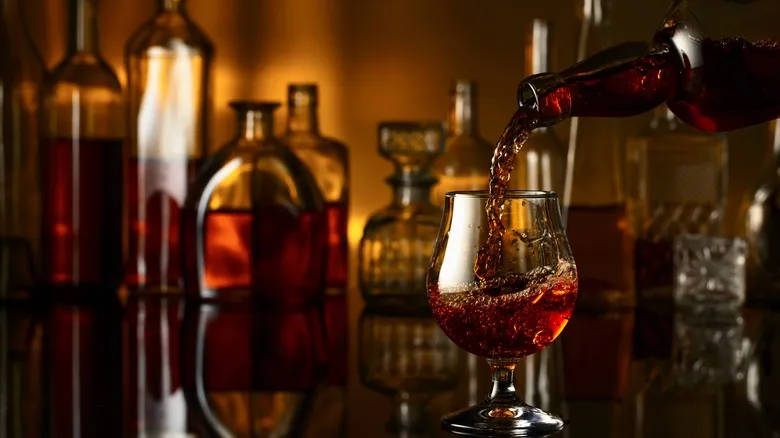Avoid direct sunlight to prevent oxidation
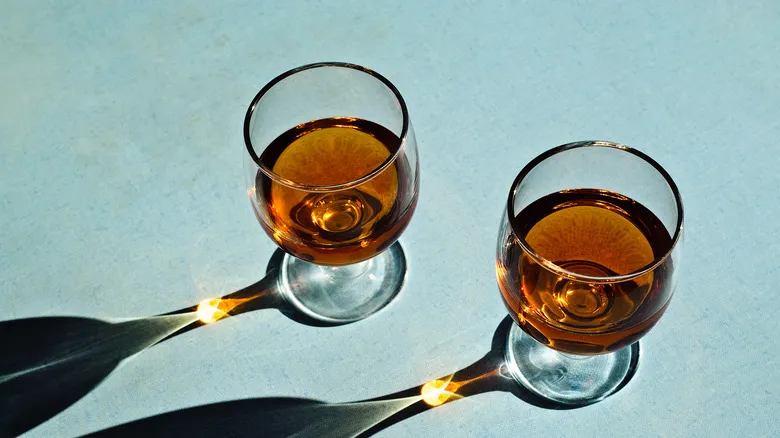
A lesser-known member of the brandy family, this dark after-dinner spirit may not be a staple in everyone's bar cart, but those who have tried it understand its worthiness for your collection. It is named after the specific region in France where it must originate to be classified as cognac. This drink boasts a fruit-forward flavor and a smooth profile, making it enjoyable neat, on the rocks, in various cognac-based cocktails, or even in baking recipes like Ina Garten's boozy pound cake!
Cognac is produced from grapes, similar to wine, and like wine, it should be protected from sunlight. Natalie Migliarini advises that if bottles are left in areas of the kitchen or on a bar cart where sunlight frequently streams through the windows, the drink can become oxidized. Instead, store it in a dark cupboard (you can add an extra layer of protection by keeping the bottle in its box or wrapping it in a dish towel). While oxidation won't render your drink undrinkable — and some degree of it is inevitable once a bottle is opened — it's wise to slow the process as much as possible, as oxidized cognac will exhibit a duller, less vibrant flavor that can be noticeable to those who appreciate the drink.
Keep bottles away from extreme temperatures
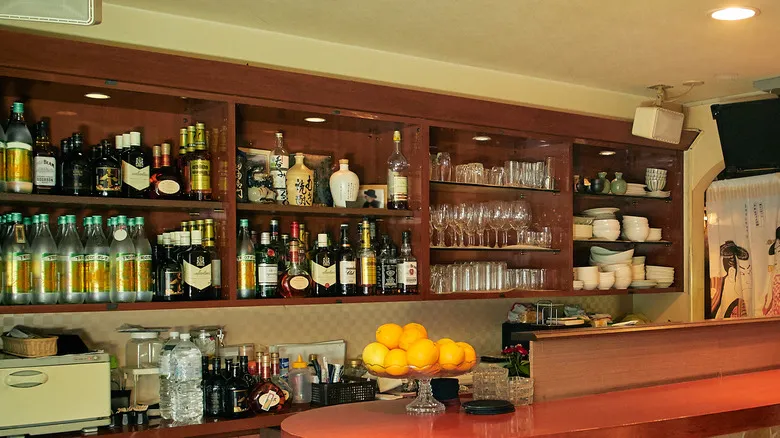
To protect your bottle of cognac from oxidation, it's important to store it away from direct sunlight. Natalie Migliarini highlights another reason for keeping it in the dark: sunlight not only diminishes the exquisite flavor of your liqueur but can also alter its beautiful, rich color, affecting the overall presentation of your pour.
Migliarini also emphasizes the importance of shielding cognac from both sunlight and temperature fluctuations. Extreme temperatures can lead to changes in humidity, which can impact the cork sealing the bottle. This can result in evaporation, and nobody wants to see good alcohol disappear. Ideally, aim for a relative humidity of around 60% to 70%. Storing bottles in excessively hot attics or in cold environments can lead to premature aging and unwanted changes in flavor.
Generally, you don’t need to worry about your spirits going bad—after all, cognac is often aged for years on purpose. With proper storage, you can enjoy that bottle for as long as you can make it last.
Recommended
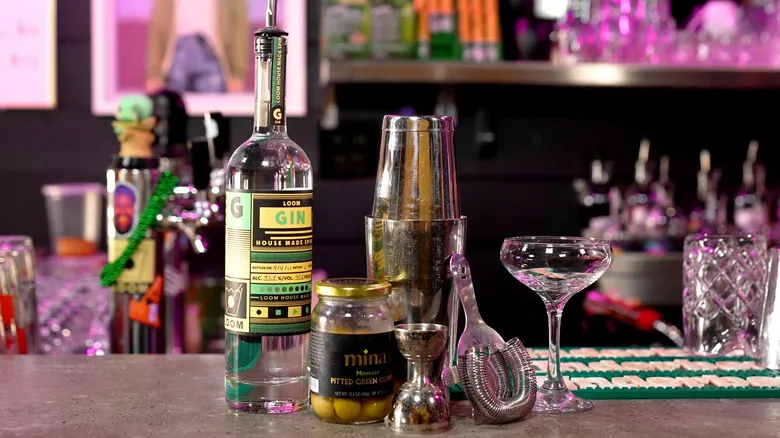
How To Make A Dirty Martini–You're Doing It Wrong All Wrong
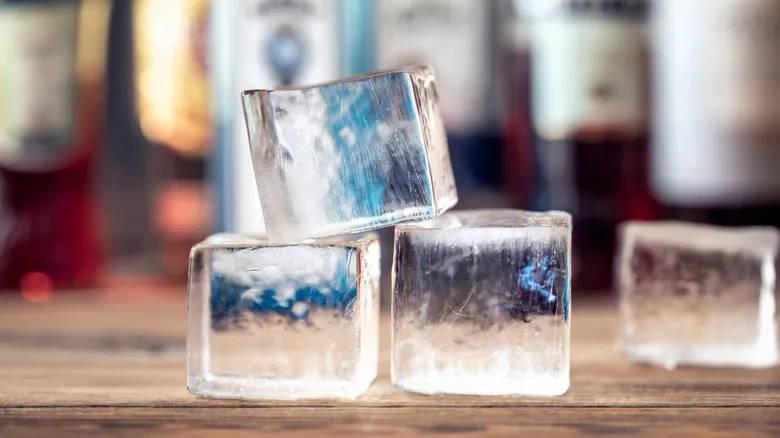
Why It's So Much Smarter To Drink Cocktails With Clear Ice

When Should You Drink Your Cocktail In A Highball Glass?

This Trader Joe's Margarita Hack Couldn't Be Easier (Just Add Tequila)
Next up

